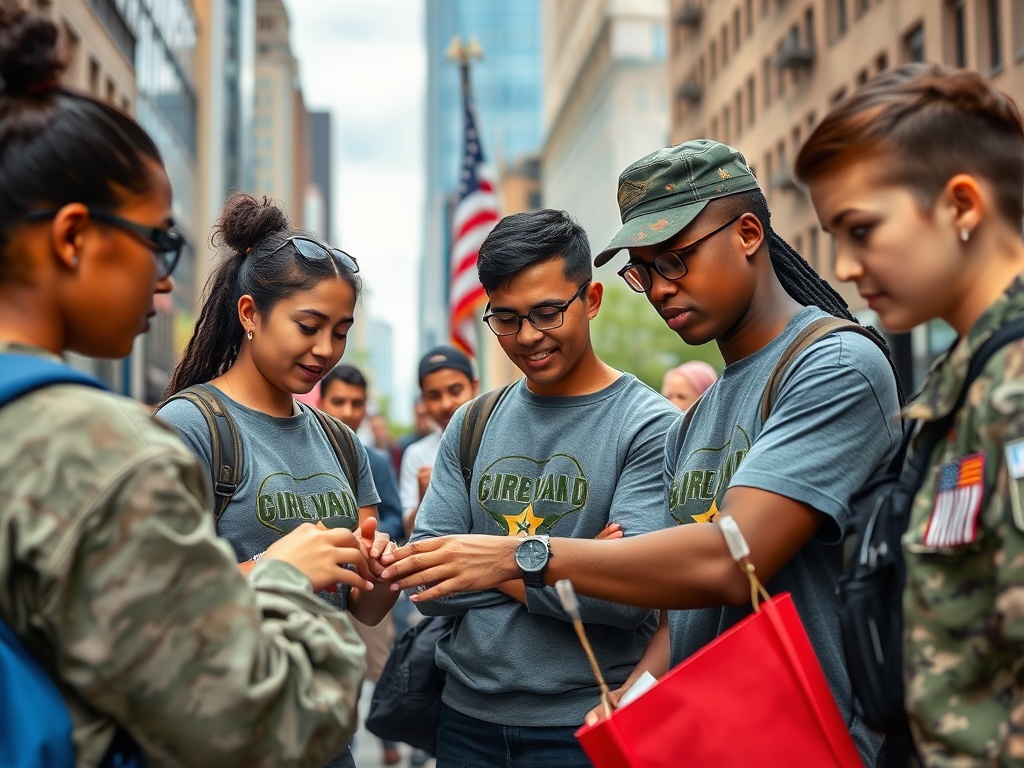Young People from Generation Z and Their Attitudes Towards War
Despite concerns that only a small fraction of British Generation Z would be willing to take up arms, many MPs and former military leaders are optimistic about the potential of young people to fight for Britain in the event of war. Recent polling indicates that merely 11 percent of those aged 18 to 27 would risk their lives for their country, with two-fifths of respondents firmly stating they would never engage in combat.
Amid a pressing recruitment crisis in the Armed Forces, Labour leader Sir Keir Starmer has expressed his readiness to deploy British troops to Ukraine as part of a peacekeeping mission. General Sir Richard Shirreff, a former NATO deputy supreme allied commander, has suggested that the UK should contemplate the reintroduction of conscription, especially in light of international dynamics that could threaten Western alliances.
Former Conservative leader Sir Iain Duncan Smith is cautious about interpreting the polling results too negatively. He argues that the reluctance of young people to fight is not necessarily indicative of a broader unwillingness to serve in the military. Drawing historical parallels, he recalled how the generation of the 1930s, who initially expressed reluctance to engage in conflict, ultimately joined the military en masse once war was upon them.
‘Young People Would Fight’
Duncan Smith, who served as a captain in the Scots Guards, shared his thoughts with The i Paper, stating, “Back in the 1930s, there was a belief that Britain would not fight, which was reflected in a debate at the Oxford Union. The motion ‘This house would not fight for King and country’ was passed by a majority. Yet, when war broke out, many of that generation were among the first to enlist.”
He described the current situation as a “peculiar level of anti-British indoctrination” among younger people, attributing this to leftist ideologies. He highlighted the contributions of Britain to global democracy, trade, and the defeat of fascism as points of pride that he believes young people will rally around when their nation is threatened.
“When push comes to shove, if your country is under threat and your values are at stake, you will defend them,” he asserted. He also emphasized the need for the military to regain control over recruitment efforts, suggesting that personal interactions with current service members would inspire young people to join.
‘I Don’t Feel Enough National Pride to Die for My Country’
In stark contrast, a significant portion of young people surveyed expressed doubts about their willingness to fight. Half of the young respondents indicated that they perceive Britain as a racist nation stuck in its historical past. In conversations with The i Paper, many Gen Z individuals rejected the notion of conscription outright.
- Zia Khan, 18, a student, remarked, “You wouldn’t want to go into battle. You’d prefer to address issues through political means rather than combat. Many people, from my perspective, don’t see why I should risk my life in a war far from home.”
- Daniel Kelly, also 18, stated, “I don’t feel enough national pride to die for my country. The idea of dying in a war is quite frightening to me.”
- Gabriel Trive, 22, a London-based student, acknowledged that he might fight if the cause were just, but described conscription as an alien concept for his generation. “Given the current political climate, I have little faith in our leaders, which would make me hesitant to fight for them or the country,” he shared.
Labour MP Calvin Bailey, a member of the Commons Defence Committee and a former RAF serviceman, believes that young people often have a clearer understanding of modern threats than older generations. He argues that trust in leadership is crucial for inspiring young people to defend their freedoms.
Is Army Recruitment in Crisis?

Hamish de Bretton-Gordon, a former colonel and military expert, noted that while many young people, including his son, are eager to join the Army, the current outsourced recruitment process is a significant deterrent. He highlighted the vast untapped potential of Armed Forces reservists, suggesting that they could play a pivotal role in any military deployments, particularly in Ukraine.
“Historically, young men and women in this country have always responded when called upon, whether in the First or Second World War,” he stated. “I have no doubt that if the situation demands, they will step up to defend their country. However, if we face a conflict with Russia, conscription may become a necessity. If the polling data about Gen Z holds true, then it may be time to consider such measures seriously.”




